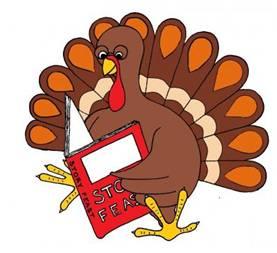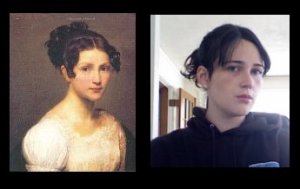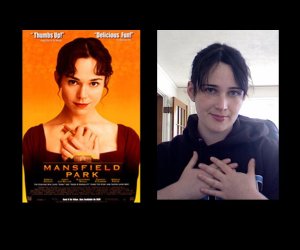One of the perks of my job is that I frequently get to converse with some pretty neat people.
Today’s neat person was award-winning playwright/director Robert O’Hara (author of such works as Insurrection: Holding History, Antebellum, and The Inheritance). Robert is a Tufts alum and all-around interesting, intelligent guy.
He came in to speak to my African American Theatre/Theory class in a round-table style conversation during which we got to ask him free-form questions which he answered in an equally free-form way. What this meant was a look at theatre (and specifically some aspects that we’ve been thinking a great deal about) from a very different perspective.
He spoke for some length about research and how much research an audience/actor/playwright should do when interacting with a piece. An audience, he says,

Sometimes, scholarship looks like this…
should be able to walk into the theatre without any prior knowledge of the piece’s specific topic and still be able to connect to the show. You can’t expect an audience to do anything but pay the ticket price, attend the play, and enjoy it from their seat (wherever that seat is situated culturally on a given night). Actors, he says, should perhaps know slightly more about a piece, but not so much that their playing of the character becomes bogged down in information. He gave the example of Insurrection (a play about the Nat Turner rebellion and what happens when a modern individual winds up accidentally time-traveling and witnessing it first hand). The day-to-day realities of slavery are horrific; but for the actors (and the characters they are portraying), these day-to-day realities need to be day-to-day realities. It is the audience who must have the cathartic life-moving experience while viewing the play. If an actor becomes too enwrapped in that cathartic experience, he deprives the audience of having it. The playwright should know something about what’s going on, but even he can research too deeply. It is counter-productive for a playwright to have too many other voices knocking around in his head when he’s trying to spit a play onto paper.
In the end, the important distinction (for O’Hara) is this: you can’t stage information.
For a dramaturge and, perhaps more immediately, a theatre scholar, this idea is a bit scary. What do you mean that research impedes the artistic process? That information can be a road-block rather than something freeing?
For an artist, I see his point completely. It’s why I think that the dramaturge is an important voice to have in a production room. If it’s my job to research and know things, then the hands-on creative types don’t need to be bothered with an excess of facts. They only need to know what they need to know, no more, and it’s up to them to tell me when enough is enough. Their job is to create; my job is to provide them with the information they need to create.
Today’s conversation only enforced, to me, the necessity of having that one person. It’s like having a living, breathing filter. A wall to block the outside world of facts from the inside space of the rehearsal room. Someone to take the barrage of raw data and ensure that it doesn’t crush the fragile cocoon of creativity being created in that room. The creative process is a delicate one and one disrupted by any number of things (some articulable, some not). Having the ability to control as many factors as possible isolates items which may impede this creative process.
When asked if he read scholarship about his own work, O’Hara laughed and likened theatre scholarship to someone asking you what kind of panties you were wearing on a given day. He said it was like someone opening up the book of your soul, examining it with the precise efficiency of a medical doctor, poking it, prodding it, observing it unfeelingly, then putting it away.
And I can’t help but think that he’s correct.
It’s why I prefer to work on dead playwrights. An autopsy is much more human than a vivisection.

…but maybe it needs to look more like this… (yes, yes, more As You photos… that’s me and my best Gay Angelo playing Oliver in the front and the lovely Ashley as Celia looking concerned behind us)
This is something that plagues me about literary criticism. All throughout my Master’s, I continually found myself hung up on one thing: oh, sure, it’s all well and good for us to apply Marxist criticism to Mary Shelley, but there’s no way that one author could have written into a piece everything that scholars read out of that piece. At a certain point, you’re dealing with lenses which may tell you something about the piece, but not anything what the author intended. Yes, I know, to be a true literary critic you have to let go of most sense of author intention… but it bothered me. And it still does, to some extent.
In the Drama department, I deal with history. I deal with things that actually happened, things that might happen, or things that will happen. My work isn’t solely based on a text (though there’s nothing shameful about a text). That’s part of the strength in this sort of work: you learn more from it than you might from theory alone.
O’Hara’s observation about scholarship is not unfounded. Art is a piece of ourselves; a part of our human soul that we choose to bare to those around us because we feel that the audience could benefit from seeing it. Scholarship often takes this humanity and reduces it to cold equations or (perhaps worse) bends it to some greater argument that the scholar contends about the world at large.
But if this is so, how can we do both? I would say without hesitation that all of my departmental compatriots consider themselves theatre practitioners as well as theatre scholars. How can we justify this kind of slaughtering of our own young?
Well, it’s slightly different when a practitioner becomes a scholar. When you know both sides of the table, you are more likely to be gentle with the art. We don’t want to kill it, but rather understand it better. Theatre practitioners make keener scholars since we see things that book-learners don’t tend to; what are you actually looking at here? What are you looking for? What are you seeing but not seeing that only some knowledge of the other side of the curtain could give you?
So yes, we poke and prod, but I would like to think that scholar/practitioners at least do it with human hands rather than cold metal instruments.
Mostly, what O’Hara instilled in me today is a sense of hope. His ideas about theatre are inspiring, his opinions about story-telling are resonant, and his thoughts on the industry are both entertaining and moving. I know that O’Hara teaches and I can only hope that his students walk away from his class with ideas similar to those that he gifted to me today.

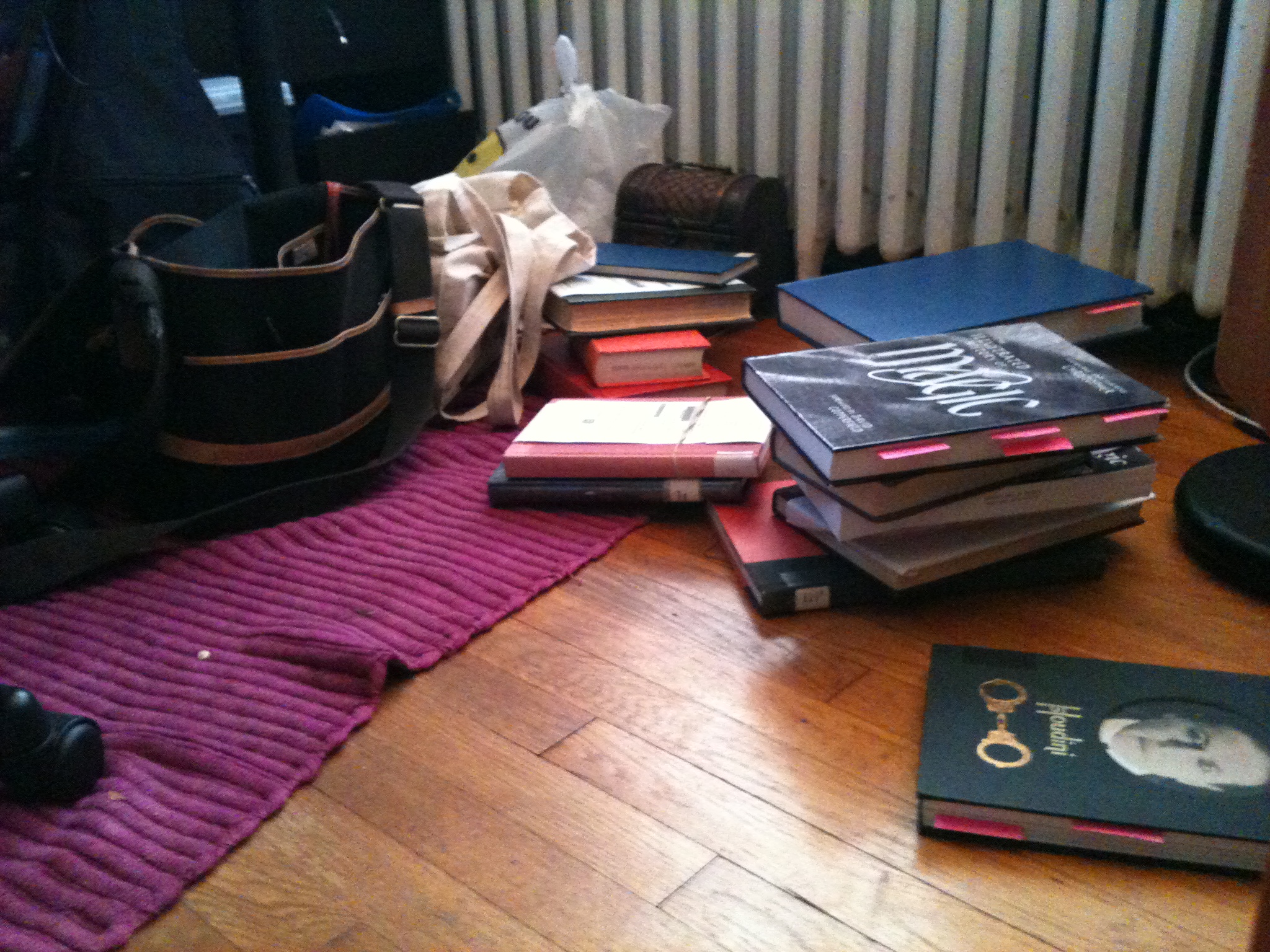


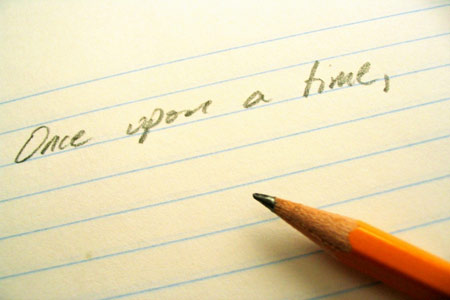 Thing 3: If you want to write, write! If you want to publish, submit! An editor can neither accept nor reject a manuscript if it has not been submitted in the first place. Just do it. What’s the worst that could happen?
Thing 3: If you want to write, write! If you want to publish, submit! An editor can neither accept nor reject a manuscript if it has not been submitted in the first place. Just do it. What’s the worst that could happen?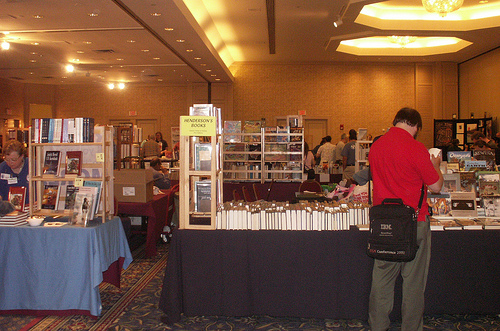

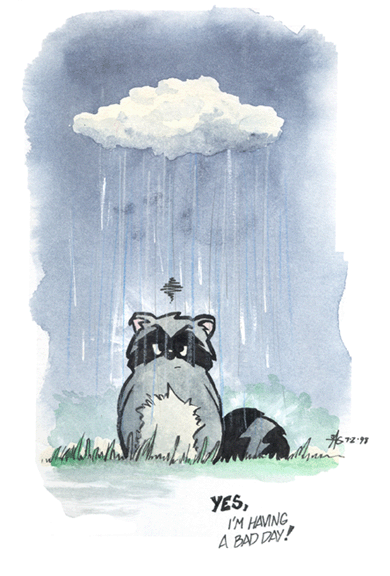
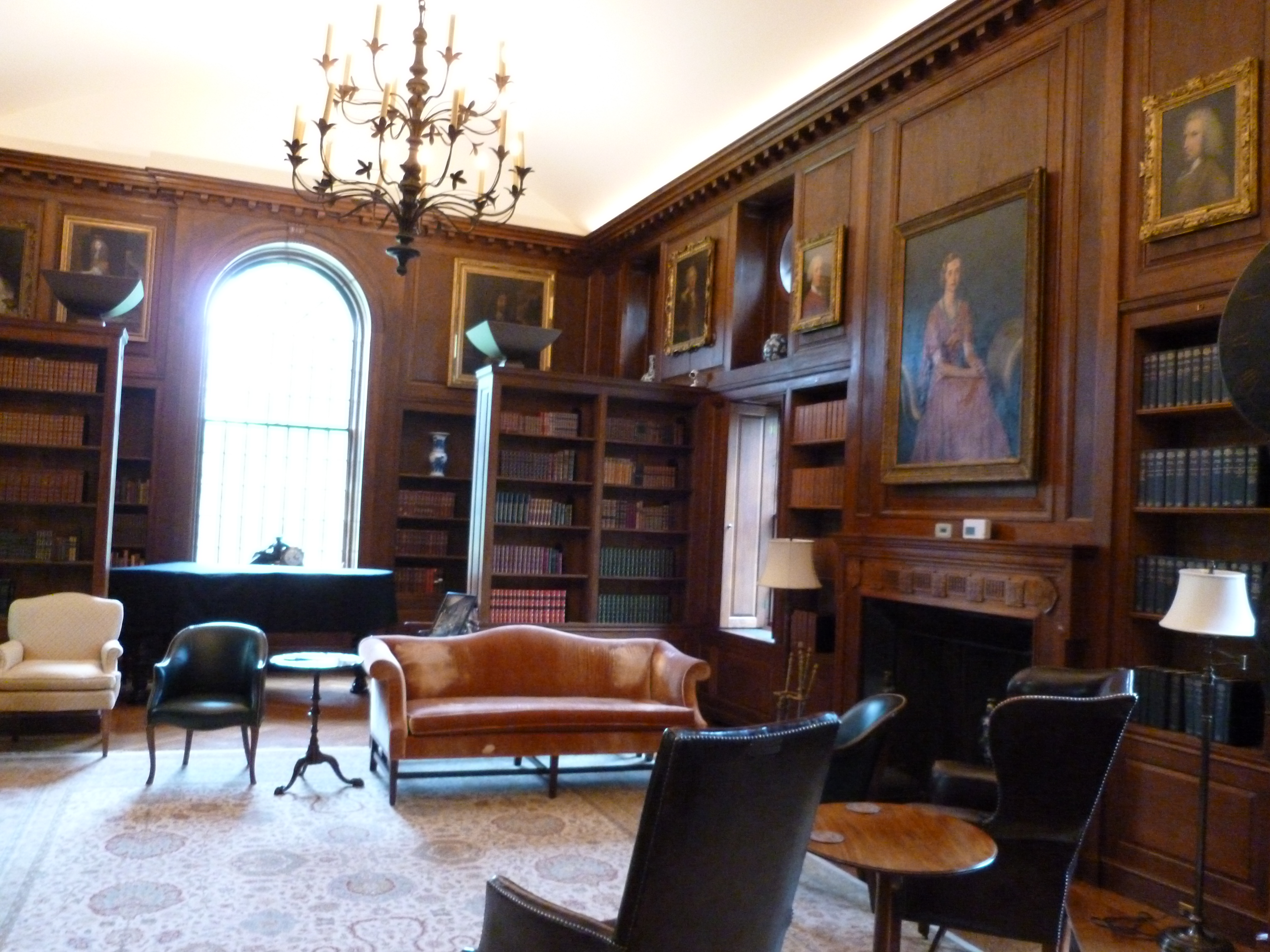



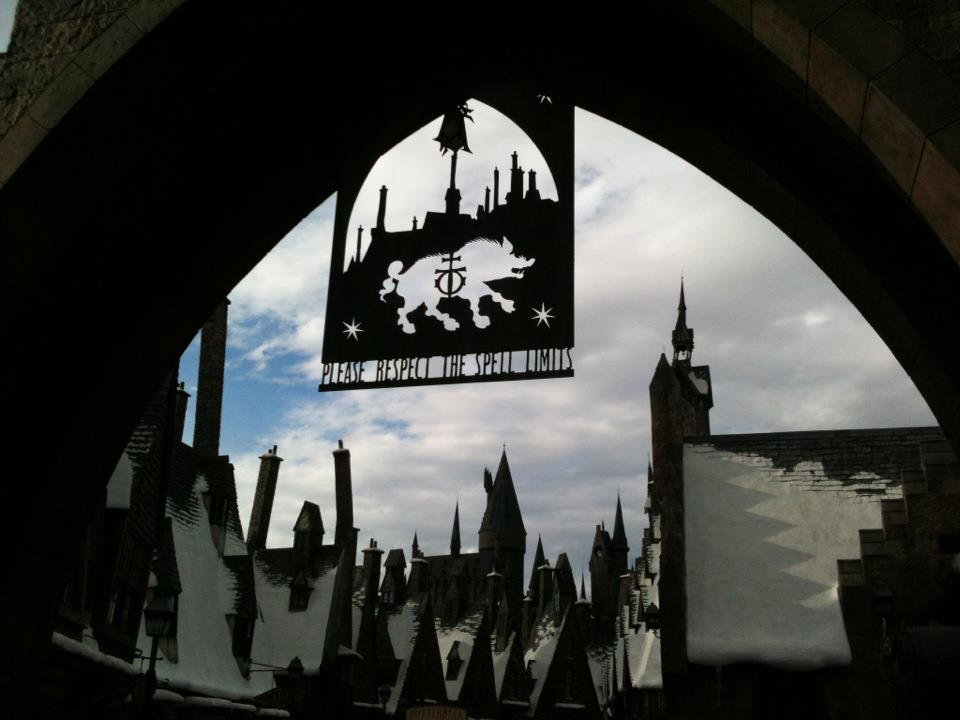
 I’ve read four books since the end of the semester, all of my own choosing, and I started on a fifth this morning. None of them have anything to do with theatre, Shakespeare, or my comps list. This, if anything, means “vacation” to me.
I’ve read four books since the end of the semester, all of my own choosing, and I started on a fifth this morning. None of them have anything to do with theatre, Shakespeare, or my comps list. This, if anything, means “vacation” to me. me at midnight and expect something witty or wise or funny or some combination of the above… inevitably I come up short (either because I’ve had a few too many glasses of champagne or because I’m tired). Somehow people are aghast and agog that the Shakespeare scholar can’t think of a single set of sage words to ring us into the next year.
me at midnight and expect something witty or wise or funny or some combination of the above… inevitably I come up short (either because I’ve had a few too many glasses of champagne or because I’m tired). Somehow people are aghast and agog that the Shakespeare scholar can’t think of a single set of sage words to ring us into the next year.
